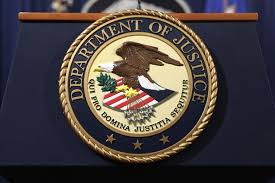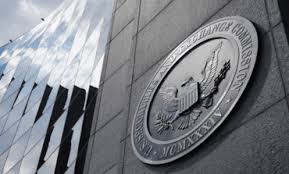Novartis and Alcon FCPA Enforcement Action: Lessons Learned (Part III of III)

The Novartis and Alcon FCPA enforcement action is chock full of interesting issues. See Novartis DPA Here , Alcon DPA Here and SEC Novartis Order Here.
At the outset, Novartis is “lucky” – the settlement is relatively positive, despite its 2016 SEC enforcement action in China. Given Novartis weak culture of compliance (if anything, a better description may be a culture of non-compliance) and its status as a recidivist, Novartis could have been slammed with a stiffer enforcement action, including assignment of an independent corporate compliance monitor and a higher penalty.
Novartis’ navigation of the DOJ and SEC confirmed the value of robust cooperation and a commitment to remediation. We are not privy to the enhancement of its ethics and compliance program, and it could be that Novartis made real and significant improvements to its program. As we say, time will tell.
From a more focused perspective, here are some of the major lessons learned:

Pre-Merger Due Diligence/Post-Merger Integration: Novartis acquired Alcon in 2011. Alcon’s bribery scheme in Vietnam began in 2007 and continued to 2014. It is clear that Novartis never discovered the Vietnam scheme in pre-acquisition due diligence nor in any post-acquisition integration FCPA audit. It is likely that Novartis did not conduct a robust pre-acquisition due diligence nor did it even conduct a post-acquisition audit since it would not be hard to detect the scheme given the importance that the Vietnam distributor played in its overall sales operations.
If Novartis had discovered the conduct, reported it soon after the acquisition, and remediated the problem, Novartis would have been in a much better position in its overall position.
DOJ’s revised Evaluation of Corporate Compliance Programs highlighted the importance of post-acquisition integration FCPA audits. A risk-based approach to conduct of these audits would easily have included Vietnam. Companies have to ensure that post-acquisition audits include appropriate audits of third-party distributors in high-risk countries.
Third-Party Distributor Monitoring and Audits: Alcon’s third-party distributor in Vietnam was responsible for sales in Vietnam since Alcon was precluded by law from interacting with state-owned hospitals and clinics. Alcon’s bribery scheme relied on reimbursement of 50 percent of bribes paid by the distributor to healthcare professionals. The primary method for payment of such reimbursement was the use of credit notes. Alcon’s accounting controls failed to include a review of credit notes to ensure that such credits were justified and adequately documented. Given the importance of the third-party in Vietnam, Novartis should have implemented a high-risk monitoring program that includes regular meetings between compliance and the business partner, scrutiny and review of transactions; and auditing of accounts (including marketing allowance funds, discounts, credit notes and other potential sources of funds for bribery purposes).

Health Care Professionals Attendance at Medical Conferences: Drug and device companies struggle with sponsoring of healthcare professionals to medical conferences. Foreign physicians continue to expect payment by drug and device companies for such expenses. Forward-thinking companies, however, have restricted such payments to sponsorships for a limited group of healthcare professionals – those with whom the company has an established consulting relationship where the HCP is promoting or speaking about medical education topics closely-related to the use or benefits of a drug or device company’s product. In other words, drug and device companies have to restrict such sponsorships to payment for “legitimate” HCP relationships, not a general “goodwill” or positive influence expenditure designed to induce increased purchases of the company’s products.
Companies that fail to restrict sponsorship payments care likely to fall outside the bounds of permissible sponsorships, and if not adequately regulated, companies can quickly slip into a potential bribery problem. If the company implements a strict approach to such payments, the message will become clear that foreign HCPs cannot expect and should not request abuse of such sponsorships.
Senior Management Involvement: Once again, Novartis and Alcon engaged in pervasive bribery schemes that were directed or acknowledged by senior level management. As always, the implications of this is clear for compliance officers – a C-Suite and executive level risk assessment and implementation of controls and monitoring activities are critical to protecting the company from significant misconduct and enforcement risks, along with the all too obvious reputational damage. Lip service is often given to C-Suite and executive level risks, but few companies if any have the commitment and willingness to ensure accountability through the design of controls and auditing of C-Suite activities.















